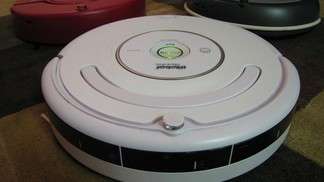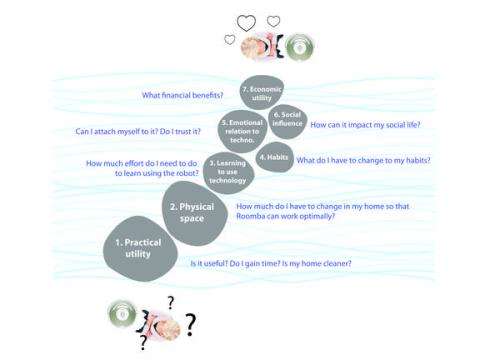Domestic robots: Harmony on the homefront?

Are robots welcome in our homes? A qualitative study done at EPFL has revealed some interesting possibilities. Only one out of three households thinks automatic vacuum cleaners are worth the investment. The opinions of the others will be used to develop the appliances of the future.
Will there be lots of gadgets under the family Christmas tree this year? By the back door, robotic vacuums are bringing cyberstuff into daily life; they’re among the first autonomous devices that can be easily used by ordinary households.
That’s all the impetus scientists needed to seize the opportunity and do a study. Understanding to what extent robots will influence daily life in the future is in fact one of the central issues being studied in the EPFL-based National Center of Competence in Research (NCCR) in Robotics.
In 2011, a team from EPFL’s Pedagogical Research and Support team (CRAFT) conducted a qualitative study on household robots. Nine compositionally diverse families (young, older, with and without children) were given a machine from one of the most common brands. “We interviewed the families before they got the robot, and then we followed them for six months, starting with their first contact with the device,” explains anthropologist and study co-author Valérie Bauwens.
Rapid and irrevocable decisions
Seven criteria of varying importance – practical, but also emotional - were developed to judge the degree to which the families adopted the robots. Put to the test and further refined by this first field study, these criteria will be useful to engineers at EPFL and elsewhere who are thinking about the domestic robots of the future.

In the end only three of the nine families liked the automatic vacuum cleaners. “It was interesting to observe that the decision whether or not to abandon them was made really fast, after about only two weeks,” Bauwens says. “Our robots had very little time to prove themselves!”
Among the elements that the users didn’t like, the researchers listed the need to modify the setup of an apartment so that the robot could do its work correctly. In addition, they didn’t like having to change certain behaviors, such as leaving things on the floor, which compromised the machine’s performance. “We even had one user who was careful to put the coffee table up on the couch to make room for the robot to work,” says second author Julia Fink.
Kids are quickly bored
The scientists also looked at the influence that these new “companions” might have on the family ecosystem. “Overall, we didn’t see many changes,” Bauwens says. “The mother is still generally in control of household organization, even with this tool.” Two of the study subjects, however, appropriated the device, giving it a name or talking to it. The children were at first very excited by the arrival of the new toy, but the older ones quickly lost interest. “It’s just a vacuum cleaner!” said one of them.
The first robot to get a foothold in apartments is thus a kind of guinea pig. Its successors - such as “Ranger,” a robotic box under development at EPFL that encourages kids to put away their toys by amusing interactions such as speaking and moving its eyes - can benefit from the problems it encountered. As for the robotic vacuums, resellers will certainly have a good idea by mid-January, high season for returns, whether or not their statistics confirm the result of the qualitative study.
Swiss TV TSR1 consumers' show A Bon Entendeur will talk about vacuum robots and this EPFL research in its January 10 edition.
Provided by Ecole Polytechnique Federale de Lausanne



















